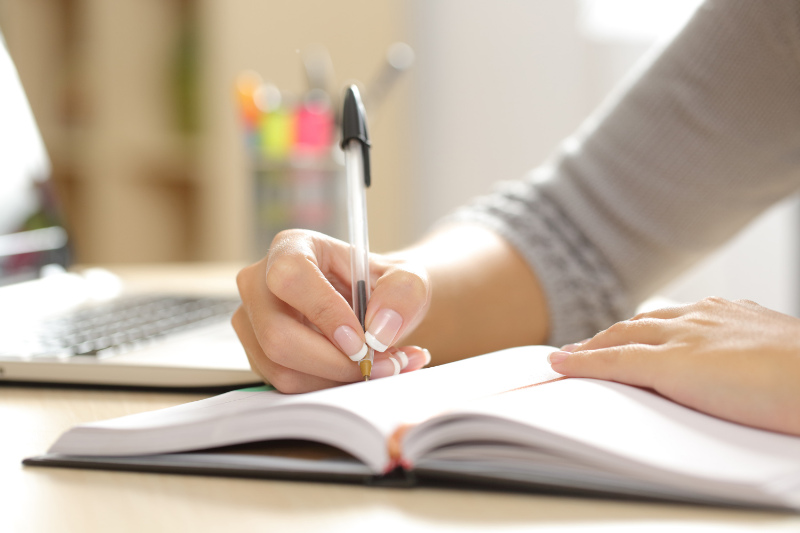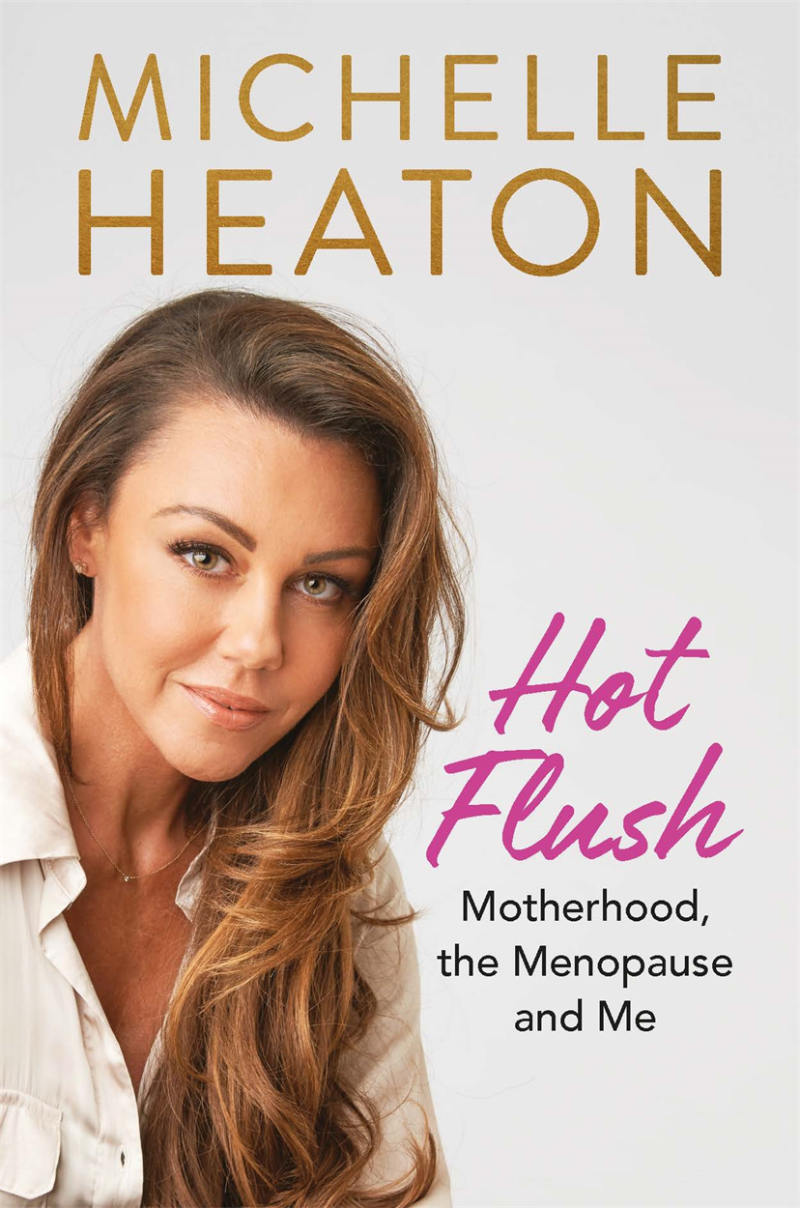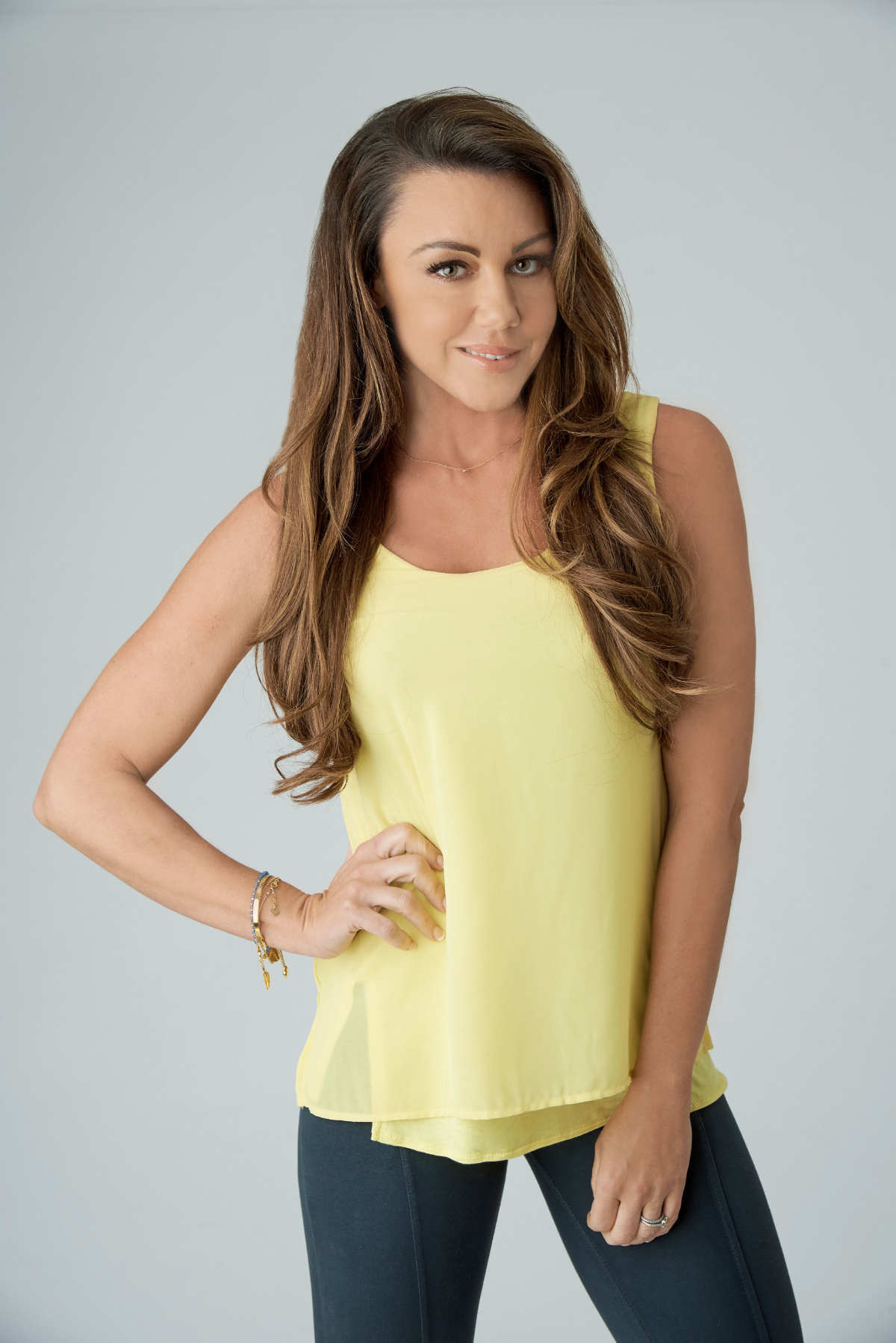Michelle Heaton – known for her glamorous show-business career as a TV personality and singer with Liberty X – has experienced emotional turbulence since she entered the menopause when she was only 33. Here she speaks about coping with early menopause and her top tips.
What is early menopause?
It was a consequence of preventative surgery – a double mastectomy and hysterectomy – to reduce her cancer risk, because she carries the BRCA so-called ‘cancer gene’ mutation. The result meant coping with early menopause and worrying about being ‘normal’.
“Menopause is a bit like childbirth, in that no two experiences are the same. While there’s no ‘one size fits all’, that’s not something to despair about. I spent too long wondering, worrying and stressing over whether I was ‘normal’ in menopause,” admits Heaton who, with refreshing honesty and candour, details the last six years in her book, Hot Flush: Motherhood, The Menopause And Me.
The 38-year-old mother-of-two says: “It’s only recently I’ve embraced the fact that there is no normal in menopause, and everyone’s experience is likely to be different. I hope what I’ve learnt will help others.”
Recommended: 6 ways to treat menopause symptoms without taking HRT.
Here’s her advice on coping with early menopause.
Coping with early menopause
1. Keep a diary

“I now realise that having a space to unburden myself, as well as a document of my experience, would have been incredibly emotionally beneficial in my recovery,” she says.
“So whether you’re in early menopause or about to undergo surgical menopause, record your feelings and emotions in the run-up and during it – I promise it will help you.
“I didn’t and I wish I had. If I’d been able to keep track of those waves of emotion, they’d maybe have been less scary, and that record would have given me a perspective on what was happening.”
2. Get information on coping with early menopause

“Ask whatever questions you want or need answers to. It’s such an uncertain and unpredictable time. Your emotions can change hourly and that’s exhausting in itself. Not to mention the fact you’ll never, ever know what reactions and behaviours are really, truly you, and what reactions and behaviours are because your emotions are in free fall and you might not have the right cocktail of HRT sorted yet,” she points out.
“You’re not expected to come through this unscathed, so don’t pretend you are. There are occupational therapists, doctors, nurses, physiotherapists – use their expertise as much as possible. Only by arming yourself with as much knowledge as you can muster will you be able to come to terms with menopause and what it might mean for your future. Don’t be afraid of being scared and vulnerable, it’s normal.”
Recommended: Eating oily fish could help delay menopause – here’s how to get more of it into your diet.
3. Workout and use the gym when coping with early menopause
“I’ve always needed my gym time, but never more so than in menopause. It’s my safe haven and has saved me from myself constantly. My emotions are never on a level and I can lose my temper far more easily since the menopause. So, if I feel my mood’s negative and the rage is building, I’ll go for a workout – we have a gym at the bottom of the garden – and leave Hugh to deal with the kids,” she explains.

“Exercise has literally become a tonic for me, and I wish the NHS could prescribe it for every single menopausal woman in the UK. When you exercise, your body releases chemicals called endorphins. These endorphins interact with brain receptors, which trigger a feeling of happiness and contentedness, and never more so than in menopause do we need those happy hormones.
“Also, it might sound counter-intuitive, but building up a sweat – however you choose to do it, whether it’s walking, swimming or the gym – will help with the hot flushes. Researchers at the Research Institute for Sport and Exercise Sciences at Liverpool John Moores University found women in menopause who undertook regular workouts for a period of four months, reduced the frequency and intensity of their hot flushes.”
4. Change your diet and reduce calorie intake
“With a change in hormones, metabolism slows down. Menopausal women don’t need as many calories as pre-menopausal women. Losing weight takes longer than normal too,” she points out.
“Metabolic changes during this time make women’s bodies more sensitive to carbohydrates and sugars, which can mean you become more insulin-resistant.”
Experts suggest women in menopause need around 200 calories a day less than women in their 20s, she says, and an average woman gains between 5lb and 7lb during menopause. “I certainly gained around that and have to work hard to keep it off. So, if you’ve already got lots of carbs and sugars in your diet, you’re unknowingly promoting fat storage which is hard to shift. ”
“On an average day, I have an omelette and vegetables for breakfast and a mid-morning protein shake if I’ve had a workout. For lunch, I’ll have a large salad, a ratatouille or mixed vegetables, a protein bar snack, and then for dinner, I opt for healthy ways to eat my favourite dishes, like using turkey mince for a shepherds pie and mashed vegetables instead of potato for the topping.”
Recommended: 10 supplements to relieve menopause symptoms.
5. Tell your boss about early menopause

“Whether you’re at the start of your journey or in the middle of it, if you haven’t told your workplace, now is the time to do so,” she advises. “It won’t be easy, but without them knowing about it, they can’t support you. You have rights as an employee gong through a long-term health condition and those rights need to be upheld.
“If your industry has a union and you’re happier talking to them in the first instance, that’s fine, but you need to start asking for help if you need it, or if you feel the symptoms of the menopause are holding you back.
“Arrange a meeting with your line manager and get HR along too, and see where you go from there. If you suffer hot flushes which disturb your sleep and make you tired, it may be you could request flexible working hours, and possibly have some consideration on temperature settings in your area.”
6. Make time for you every day when coping with early menopause
“In menopause, it’s so easy to get lost and feel like you’re drowning. Setting aside some time every day, just for you, will do wonders for your emotional wellbeing, whether it’s reading a good book or calling a friend for a chat,” she says.
“As women, we’re not always best at prioritising our needs over those of our family, friends or employers, but relaxing and doing something you enjoy will protect your mental health as you try and navigate your way through menopause.
“If you struggle to relax, there are plenty of mindfulness apps you can try for free. What’s important is that you set aside some time daily where you are priority number one, and nothing and no-one else can interfere. It doesn’t have to be long. Half an hour – twenty minutes, if that’s all you can spare – will make a world of difference. I’m a better wife and mother on the days where I prioritise myself a little bit at the start or the end of the day.”

Hot Flush: Motherhood, The Menopause And Me by Michelle Heaton, is published by Michael O’Mara Books, priced £18.99. Available from Amazon.
Wise Living Magazine may receive a small commission to help support the running of this site from purchases made from links on this page. Affiliate links do not influence our editorial or articles published by Wise Living.
How to survive menopause – 5 ways to cope with menopause symptoms































































